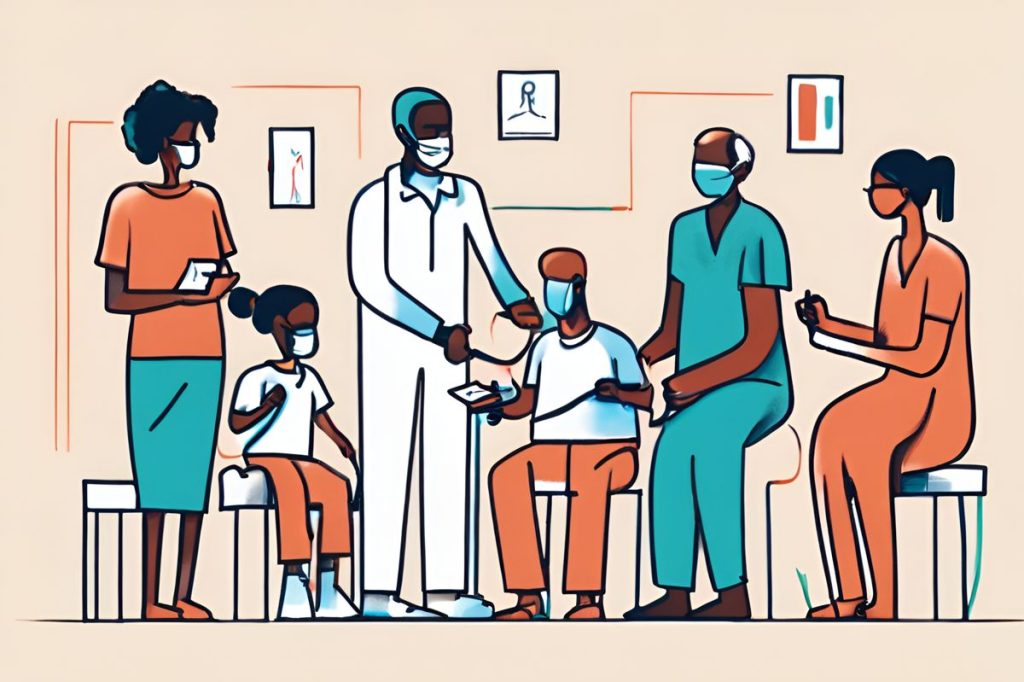Avraam Elias, the director of the paediatric department at Makarios hospital, urges the public to vaccinate their children as measles cases surge in Europe, emphasizing the importance of achieving a 95% vaccination rate to ensure herd immunity and prevent outbreaks. With the MMR vaccine playing a crucial role in safeguarding against measles and its severe complications, the ethical responsibility to community health underscores the necessity of vaccination.
Why is vaccination important in the rise of measles cases in Europe?
Vaccination against measles is crucial as it protects individuals and aids in achieving herd immunity, reducing outbreak risks. The MMR vaccine, administered in two doses, is essential for preventing measles and its severe complications, fulfilling an ethical responsibility to community health. Health officials aim for a 95% vaccination rate to ensure herd immunity and safeguard the population.
The Growing Threat of Measles
In light of the alarming increase in measles cases across Europe, Avraam Elias, the director of the paediatric department at Makarios hospital, has made a strong appeal to the public to vaccinate their children. While reassuring that Cyprus has not reported any new cases in the past month, Elias referenced the World Health Organisation’s concern over the surge of infections throughout the continent. The WHO reports a staggering 56,634 cases in 45 European countries this year alone, nearly reaching the entirety of last year’s cases, which totaled 61,070 with 13 deaths.
Elias noted that, so far this year, eight cases have been documented in Cyprus, most of which involved unvaccinated individuals. This situation has raised alarm among medical professionals and citizens alike. The director underscored the importance of vaccination, explaining that the measles vaccine is a component of the MMR vaccine, which also protects against mumps and rubella. The vaccine protocol includes two doses: the first given when a child is 12 months old, followed by a second dose a few months later.
The Importance of Herd Immunity
The concept of herd immunity plays a pivotal role in the prevention of measles outbreaks. Elias points out that current vaccination coverage in Cyprus is approximately 80%, a number significantly lower than the 95% recommended by WHO to achieve herd immunity. Without this level of coverage, populations are vulnerable to outbreaks, as measles is an exceedingly contagious disease that can spread rapidly among those who lack immunity, either from vaccination or previous infection.
Elias expressed dismay at the decision of some parents to forego vaccinating their children, relying on the immunity of the majority to protect their own. This approach, he argued, is flawed and puts at risk not only their children but also the broader community. The WHO has emphasized that measles not only results in high hospitalization rates but can also have lasting effects on children’s health, lowering their defenses against other infectious diseases.
The Vaccine and Its Benefits
Vaccination against measles does more than just protect individuals; it safeguards entire communities. Elias highlights that the MMR vaccine, which includes protection against measles, is not just a preventive measure but an ethical responsibility. By vaccinating children, parents not only prevent their own offspring from becoming seriously ill but also contribute to the health and well-being of society.
Measles is not a trivial illness. It can lead to serious health complications, and in some cases, it can be fatal. The WHO has noted that the disease can be especially severe for young children. Given the ease with which measles can spread, vaccination becomes even more crucial.
Understanding Measles and Vaccination
For those unfamiliar with measles, it is a disease that manifests with fever, cough, runny nose, inflamed eyes, and a distinctive red rash. Often dismissed as a childhood illness, it can be severe, with complications that include pneumonia, encephalitis, and even death. The MMR vaccine is an effective safeguard against this disease, and it is typically administered in two doses during childhood.
In conclusion, with measles cases on the rise in Europe, health officials like Avraam Elias are advocating strongly for vaccination. The goal is to reach a 95% vaccination rate to ensure herd immunity, thereby greatly reducing the risk of further outbreaks. Vaccination not only protects individuals but also strengthens the health infrastructure by preventing the spread of this preventable yet dangerous disease.
Why is vaccination important in the rise of measles cases in Europe?
Vaccination against measles is crucial as it protects individuals and aids in achieving herd immunity, reducing outbreak risks. The MMR vaccine, administered in two doses, is essential for preventing measles and its severe complications, fulfilling an ethical responsibility to community health. Health officials aim for a 95% vaccination rate to ensure herd immunity and safeguard the population.
What is herd immunity and why is it important in preventing measles outbreaks?
Herd immunity refers to the protection of a population against a particular disease when a high percentage of individuals are immune through vaccination. This concept is crucial in preventing measles outbreaks as the disease is highly contagious. Achieving a 95% vaccination rate is necessary to establish herd immunity and prevent the rapid spread of measles among vulnerable individuals.
What are the benefits of the MMR vaccine in protecting against measles?
The MMR vaccine not only provides protection against measles but also mumps and rubella. Administered in two doses, the MMR vaccine is a critical preventive measure that safeguards both individuals and communities. By vaccinating children according to the recommended schedule, parents not only protect their own children from severe illness but also contribute to community health by reducing the risk of outbreaks.
What are the symptoms and potential complications of measles?
Measles typically presents with symptoms such as fever, cough, runny nose, inflamed eyes, and a distinctive red rash. While often considered a childhood illness, measles can lead to serious complications, including pneumonia, encephalitis, and in some cases, death. Vaccination against measles is essential in preventing these severe outcomes and protecting individuals from the potentially devastating effects of the disease.

